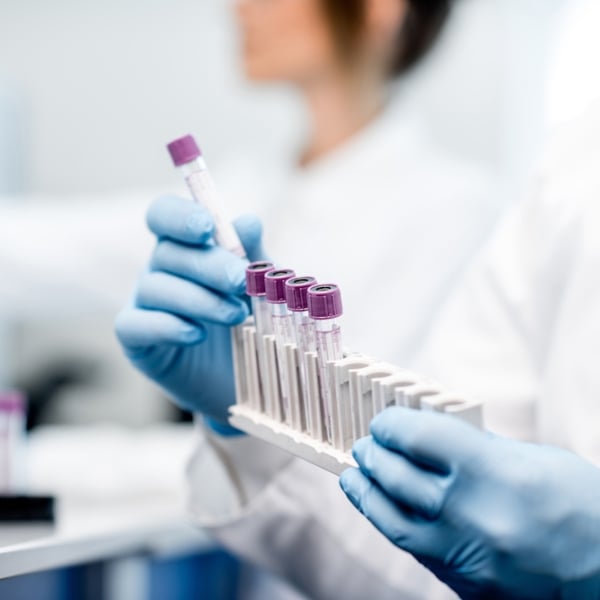Ovarian Cancer Care at Virginia Oncology Associates
What to Expect if You Were Diagnosed with a Gynecologic Cancer
Ovarian cancer is among the female cancers treated by a gynecologic oncologist. This type of doctor focuses exclusively on treating cancers found in women's reproductive systems. Dr. Robert Squatrito, a Virginia Oncology Associates gynecologic oncologist, explains what you might expect after a diagnosis.
What is Ovarian Cancer?
Ovarian epithelial cancer is a type of gynecologic cancer that begins in the tissue that covers the ovaries, which are the reproductive glands that produce eggs (ova). While there are different types of ovarian cancer, such as germ cell and stromal tumors, ovarian epithelial cancer is the most common, accounting for about 90% of ovarian cancer patients. This cancer typically occurs in women who are past menopause (approximately age 50 and up), with about half of the women who are diagnosed at age 63 or older. More Caucasian women are affected than African-American women.
Signs of ovarian cancer are often subtle. Patients may present symptoms of nonspecific pelvic or abdominal symptoms, such as bloating, frequent urination, irregular periods or unexpected vaginal bleeding (after menopause), indigestion, fatigue, and pain in the back, abdomen, or pelvis. Because symptoms are similar to those of other common conditions, ovarian cancer can be difficult to diagnose at an early stage.
There is no way to completely prevent ovarian cancer. Ovarian cancer is caused by some factors that you can control - like obesity and smoking, but also other factors that you can not. Find out what you can do to avoid ovarian cancer from developing.
There is not a standard test to screen for ovarian cancer, so it’s important to watch out for symptoms and report them to your doctor. In some cases, ovarian cancer can be difficult to diagnose because symptoms may not be noticeable until the cancer has progressed. If you find you're noticing signs or symptoms of ovarian cancer, your doctor may run some diagnostic tests including:
- Pelvic Exam
- Blood Tests
- Ultrasound
If you’ve been diagnosed with ovarian cancer, your gynecologic oncologist will determine the stage of your cancer to help decide on a treatment plan. Ovarian cancer stages range from Stages I - IV, based on whether the cancer has spread to other parts of the body. The doctor may order tests to determine whether the cancer has spread, including:
- CT scan
- Chest x-ray
- Colonoscopy
The gynecologic oncologists at Virginia Oncology Associates will develop a cancer treatment plan that’s best for you based on your type and stage of ovarian cancer and your general overall health. Your treatment plan will typically involve surgery. Although, chemotherapy and other targeted therapies might also be used.
New treatments for ovarian cancer are currently under investigation and available to patients in Virginia. Virginia Oncology Associates through our participation with Sarah Cannon Research Institute (SCRI) offers more than 70 active cancer research trials at any given time.
Those who want to know whether their ovarian cancer was caused by a known genetic mutation causing hereditary ovarian syndrome can set up a genetic counseling session. Our Genetic Counselors can help you learn more about the genetic testing process and whether it’s right for you or members of your family.
Cancer resources, including support groups, are available to ovarian cancer patients and family members. We encourage you and your family or caregivers to take advantage of these local resources including the Cancer Action Coalition of Virginia.
The Latest Ovarian Cancer Treatments Are Available in Southeast Virginia
For compassionate cancer care and the latest ovarian cancer treatments available in southeast Virginia, contact the gynecologic oncologists at Virginia Oncology Associates. We specialize in the treatment of cancer, including medical and surgical oncology treatments, integrative medicine, clinical research, and patient support. Our cancer centers are located in Norfolk, Suffolk, and Chesapeake, Virginia.

Additional Ovarian Cancer Education














